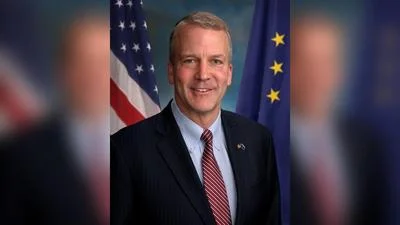Senator Lisa Murkowski - vice chairman of the Indian Affairs committee | Official U.S. Senate Headshot
Senator Lisa Murkowski - vice chairman of the Indian Affairs committee | Official U.S. Senate Headshot
U.S. Senator Lisa Murkowski (R-AK), Vice Chairman of the U.S. Senate Committee on Indian Affairs (SCIA), introduced S.4365, the Veterinary Services to Improve Public Health in Rural Communities Act, aimed at preventing and controlling severe zoonotic diseases in rural, tribal communities. The bill directs the U.S. Department of Health and Human Services, Indian Health Service (IHS) to provide veterinary services to Indian Tribes and Tribal organizations, including spaying and neutering domestic animals.
Studies indicate that Native children have the highest rate of dog bite injuries in the nation, with rural Alaska experiencing the highest rate of dog bite hospitalizations, leading to significant rabies transmission.
“Unfortunately, in Alaska we are experiencing more frequent rabies outbreaks in wild animal populations," said Vice Chairman Murkowski. "Rural communities are disproportionately at higher risk of rabies transmission to humans due to uncontrolled dog populations in remote areas of Alaska—which is particularly concerning given the challenges of providing health care in many rural and remote villages."
Murkowski emphasized that existing vaccinations and volunteer veterinary services are insufficient to meet growing needs. "My bill would help bolster the veterinary workforce in Alaska, creating healthier and safer communities across the state,” she added.
Monique Martin, Vice President of Intergovernmental Affairs at Alaska Native Tribal Health Consortium, remarked on the lack of access to veterinary care impacting both animals and human health. “This legislation is a big step in the right direction because it will allow Tribes and Tribal Health Organizations to provide a level of veterinary care in the communities we serve,” she stated.
Donald E. Charlie, former 1st Chief of the Nenana Native Association, supported the bill by highlighting its cost-effectiveness compared to medical evacuations resulting from feral dog attacks.
Angie Fitch, Executive Director of Alaska Native Rural Veterinary Inc., expressed gratitude for Senator Murkowski's efforts: “Prevention is far healthier and less expensive than the consequences of not having it.”
Brian Lefferts, Director of Public Health at Yukon-Kuskokwim Health Corporation, noted that this legislation would enhance their ability to protect people from rabies and other zoonotic diseases.
Arleigh Reynolds, Director of One Health at University of Alaska Fairbanks’ Department of Veterinary Medicine commented on how addressing dog overpopulation through preventive care would save millions while improving physical, mental, and cultural health within rural communities.
The Veterinary Services to Improve Public Health in Rural Communities Act has been referred to committee for further consideration.






 Alerts Sign-up
Alerts Sign-up